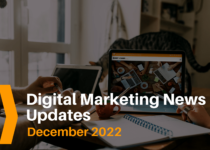Mastering the Digital Landscape: 4 Core Modules of Digital Marketing in 2025
In the ever-evolving world of marketing, digital strategies have become paramount. To thrive in 2025, businesses must understand and effectively utilize the core modules of digital marketing. This article breaks down four essential components that form the foundation of a successful digital marketing strategy.
1. Search Engine Optimization (SEO)
SEO is the practice of optimizing your website and content to rank higher in search engine results pages (SERPs). This involves:
- Keyword Research: Identifying the terms your target audience uses when searching for products or services like yours.
- On-Page Optimization: Optimizing elements within your website, such as title tags, meta descriptions, and content, to align with relevant keywords.
- Off-Page Optimization: Building high-quality backlinks from other reputable websites to increase your website’s authority.
- Technical SEO: Ensuring your website is easily crawlable and indexable by search engines.
Why SEO Matters:
SEO drives organic (non-paid) traffic to your website, making it a cost-effective way to reach your target audience. Higher rankings on SERPs increase brand visibility and credibility, leading to increased website traffic and potential customers.
2. Social Media Marketing (SMM)
SMM involves using social media platforms to connect with your audience, build brand awareness, and drive traffic to your website. Key aspects of SMM include:
- Content Creation: Developing engaging content that resonates with your target audience and encourages interaction.
- Community Building: Fostering a community around your brand by interacting with followers, responding to comments, and running contests or giveaways.
- Paid Social Media Advertising: Utilizing paid advertising options on social media platforms to reach a wider audience and target specific demographics.
- Social Media Analytics: Tracking key metrics such as engagement, reach, and website traffic to measure the effectiveness of your SMM efforts.
Why SMM Matters:
SMM allows you to connect with your audience on a personal level, build brand loyalty, and drive targeted traffic to your website. It also provides valuable insights into your audience’s interests and preferences.
3. Content Marketing
Content marketing focuses on creating and distributing valuable, relevant, and consistent content to attract and retain a clearly defined audience — and, ultimately, to drive profitable customer action. This can include:
- Blog Posts: Sharing informative and engaging articles on topics related to your industry or products.
- Infographics: Presenting data and information in a visually appealing and easy-to-understand format.
- Videos: Creating video content that educates, entertains, or promotes your brand.
- Ebooks and White Papers: Offering in-depth resources on specific topics to establish your expertise.
Why Content Marketing Matters:
Content marketing helps you attract and engage your target audience, build brand authority, and drive organic traffic to your website. It also provides valuable content that can be shared on social media and used in other marketing efforts.
4. Paid Advertising (PPC)
PPC advertising involves paying for ad space on search engines and other websites to drive targeted traffic to your website. Key aspects of PPC include:
- Search Engine Marketing (SEM): Running ads on search engines like Google to reach users actively searching for products or services like yours.
- Display Advertising: Placing ads on websites within a network to reach a broader audience.
- Remarketing: Targeting ads to users who have previously interacted with your website or brand.
Why PPC Matters:
PPC provides immediate visibility and allows you to target specific keywords and demographics. It can be a highly effective way to drive traffic to your website and generate leads or sales.
Conclusion:
Mastering these four core modules of digital marketing is essential for success in 2025. By developing a comprehensive strategy that integrates SEO, SMM, content marketing, and paid advertising, businesses can effectively reach their target audience, build brand awareness, and drive growth in the competitive digital landscape.


